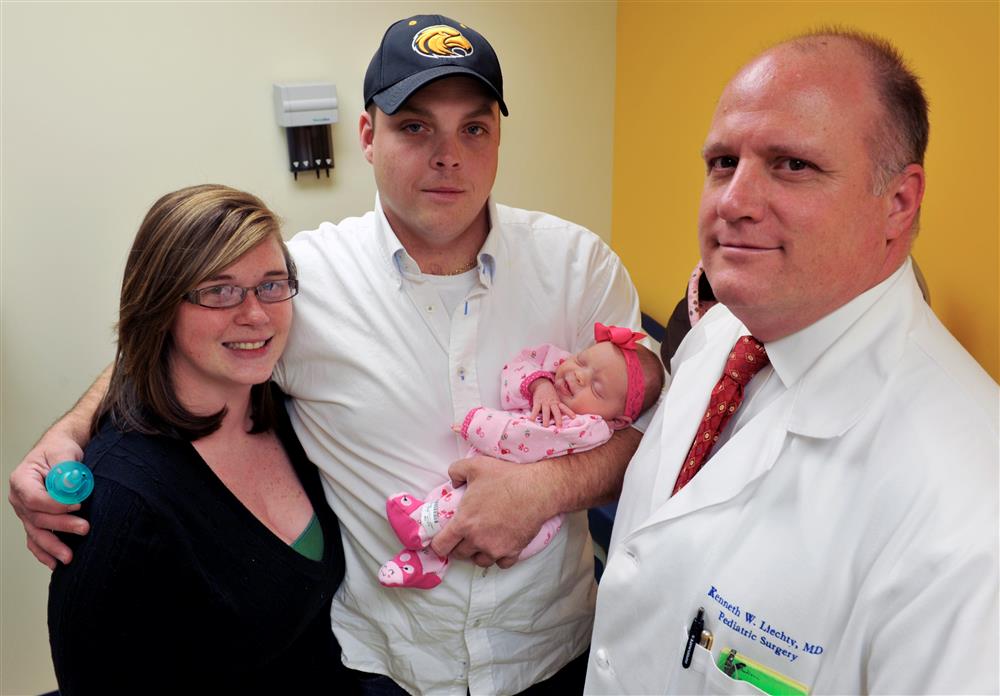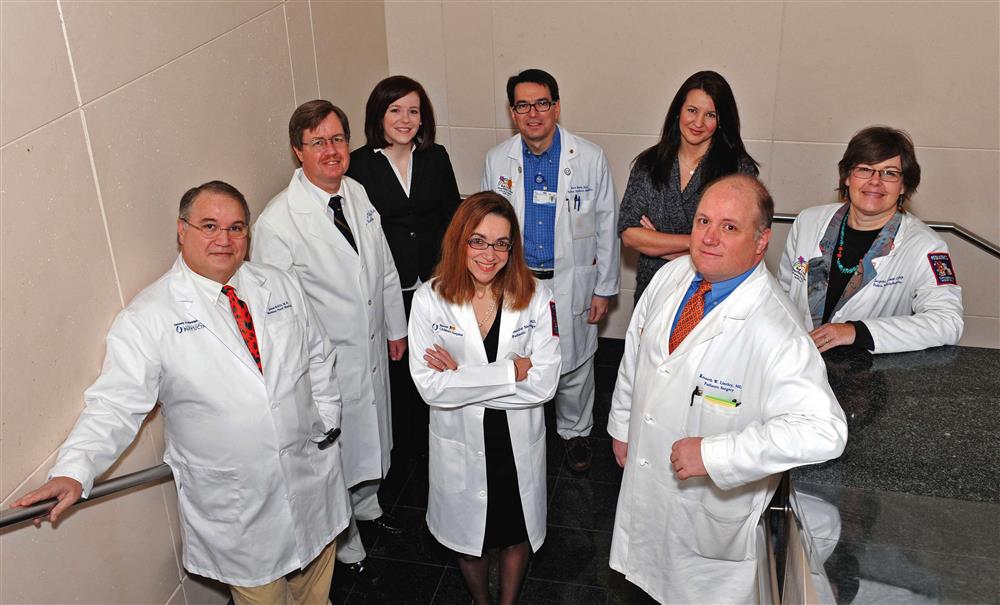UMMC fetal medicine center gives infants best chance at life

In fixing heart defects, abdominal wall malformations, tumors and a range of other issues in the youngest of babies, a new multidisciplinary center at the University of Mississippi Medical Center offers in-depth procedures previously unavailable in Mississippi, helping keep patients close to home.
In the year since the University Center for Fetal Medicine's inception, its team members have evaluated and delivered more than 200 babies, many of them with complex birth defects that would otherwise have had to seek care in Cincinnati, Ohio, Philadelphia, Pa., San Francisco, Calif. or other far-flung cities.
There's nothing more terrifying than being an expectant parent and finding out your baby has something wrong. Unfortunately, many care providers do not have the experience or resources to provide an accurate diagnosis, prognostic information or management options to these families," said Dr. Kenneth Liechty, associate professor of pediatric surgery and center director.
"UMMC and Batson Children's Hospital now offer a multidisciplinary center to provide the highest level of fetal medicine to these patients. Ultimately, we don't want families from Mississippi to have to go outside the state for care."
Sending mothers out of state for highly technical care heaps expense on families, insurers and, when the patient doesn't carry private insurance, the state of Mississippi.
One parent who remained in Mississippi for a procedure was Emily Farlow of Hattiesburg. In her last month of pregnancy, she went to the doctor's office for a final ultrasound. That's when a previously unseen tumor was detected in the fetus's mouth.
Within a week, Farlow was in Jackson talking to Dr. James Bofill, professor of obstetrics and gynecology, and Liechty. Farlow's daughter Zoey was the second infant in Mississippi to undergo an EXIT procedure- or ex utero intrapartum treatment procedure - at Batson Hospital.

The EXIT procedure is a specialized surgery used to deliver babies who have suspected airway compromise in order to secure the airway and prevent brain damage from a lack of oxygen. The EXIT is more complex than a standard Caesarian section because the mother is under general anesthesia, which maintains blood flow to the placenta and the infant. The infant is partially delivered with only the head and upper torso visible.
Liechty said it took about 30 minutes for the procedure and then the infant was delivered and the umbilical cord was cut. Zoey was taken to an operating room next door to her mother where the tumor was removed.
Farlow said she was pleased with the results. "You would have never guessed that we went through what we did. You can't even tell there was ever any surgery done," she said.
In 15 percent of pregnancies, the fetus will have something wrong, ranging from a simple skin tag to major developmental disorders that involve multiple organ systems and require surgery and months of intensive care. Some of these patients even require surgery before birth or special delivery procedures.
Liechty, who came to UMMC in 2009 from Pennsylvania, was a member of the Center for Fetal Diagnosis and Treatment at Children's Hospital of Philadelphia (CHOP).
"At CHOP I cared for several Mississippi moms who relocated to Philadelphia for care," he said.
The chance to start a center in Mississippi and bring a new level of specialized fetal and neonatal care to the South played heavily into Liechty's decision to move.
"I was a fellow when (CHOP) set up its fetal center and was involved from the beginning. So I learned a lot about how a center for fetal medicine should work."
Some expecting families live hours away and coming to UMMC multiple times for consultation, imaging, diagnosis and discussion of treatments just isn't possible and relocation isn't an option for them.
"In one day they can come here and get an answer rather than being referred to several different specialists on several different days," Liechty said. "The center coordinates these appointments into one day and at one central location."
Liechty and the center's other members worked to make the moms' experience smooth and efficient. Much of that relies on B.J. Mize, nurse manager and center coordinator, who organizes visits for each mom. And that's no simple feat, considering the center's reliance on multiple departments, divisions and specialists.
As the center grows, Liechty plans to offer fetal interventional procedures - operations that can correct abnormalities before the baby is delivered.
When dealing with some of the most difficult issues and high-risk pregnancies, some babies don't make it. It's why palliative care specialists keep a caring hand in the center, too.
"We give them the best possible chance at life. Without the procedures we offer and that level of care, many wouldn't have had a chance at all," Liechty said.
Pediatric cardiologist Dr. Jennifer Shores said the Center for Fetal Medicine centralized the care available in many existing specialties.
"The pieces of the puzzle were there already," she said. "The fetal center helps pull them together under the same roof.
Personally, through her involvement in the center, Shores is seeing a larger number of patients with multi-organ system involvement as well as congenital heart defects.
"Previously, fetal heart patients would be diagnosed here, born here, then transported elsewhere for surgery," she said. "Now we offer that surgery here with Dr. Jorge Salazar. It's expanded my practice to include more surgical and post-operative care of neonates."


